What now for Ikon?
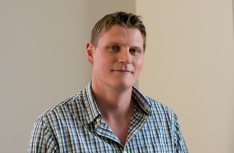 From an agency revered by its rivals Ikon has fallen to become one fighting for its very existence. Mumbrella editor Alex Hayes looks at what caused this fall, and what the agency can do to build from here.
From an agency revered by its rivals Ikon has fallen to become one fighting for its very existence. Mumbrella editor Alex Hayes looks at what caused this fall, and what the agency can do to build from here.
News of the resignation of James Greet as CEO of Ikon Communications has come as a surprise to many in the industry. Retaining the Commonwealth Bank account made it appear the once-revered agency had started to emerge from what had been a very deep trough.
But scratch under the surface and it’s clear Ikon is still an agency dealing with a lot of issues.
Its struggles are well documented, and date back to before the sudden culling of CEO Dan Johns and much of his senior leadership team. Greet was bought into replace him, but it was no secret he had a tough job on his hands.
Then came a series of body blows for the agency, first losing the Vodafone account to Bohemia without a pitch, followed by Coca-Cola to UM and then Diageo to a creative agency, Leo Burnett. However, the biggest blow was news the agency’s oldest and biggest client CommBank, was pitching its account.
It was as that pitch was reaching its climax in October that Mumbrella’s deputy editor Nic Christensen and I spent a couple of hours with CEO James Greet and chief strategy officer Matt Perry, who were keen to explain the new proposition they wanted to bring to market for the agency.
The idea was simply to become a ‘hub’ agency, co-ordinating the other agencies on a brand’s roster through campaigns, becoming the strategic partner for a marketer, helping them navigate the fragmented world of media to choose the best executions for the best channels.
It would not be adding a creative arm, but would happily call in creative, social media, PR, digital or other specialist agency to assist as required, they said, stressing it would be channel agnostic.
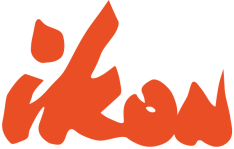 On the surface the proposition sounded plausible enough. After all marketers, especially those from larger brands, often complain they are struggling to manage the roster of agencies they have under them, so why not outsource that grief to free up some of their time?
On the surface the proposition sounded plausible enough. After all marketers, especially those from larger brands, often complain they are struggling to manage the roster of agencies they have under them, so why not outsource that grief to free up some of their time?
But I also couldn’t help but feel it was quite similar to the proposition Naked Communications opened its doors with over a decade ago, and moved away from last year as it found too many other agencies were now cutting its grass.
I asked them if they think clients would pay for strategic thinking, given it’s pretty much given away as an add-on by most agencies of almost any persuasion in pitches nowadays? Their answer was simple. They believed they would, if it was good enough.
They were keen to get the new proposition into market, and we talked about articles and potential hangouts. However, as Nic was setting up the interviews for the feature piece, they had a change of heart and decided not to go ahead. That was a major red flag at our end things were not right.
Many industry observers were surprised Ikon had made it into the final round of the CommBank pitch, and put it down to respect for the longstanding relationship (the bank was Ikon’s founding client in 1999), as well as the sudden and unexpected return of long-time account lead Pat Crowley after his two month defection to Match Media.
Crowley led the latter part of the pitch to retain the business, beating out OMD and a Mediabrands offering in the process, whilst Greet took a back seat in the process.
This move got a lot of tongues wagging, with some even suggesting STW were preparing to spin off a new agency under Crowley to handle the account. While those reports proved to be somewhat wide of the mark, the fact now remains that Crowley is leading the Sydney office, which also happens to have as its major account the $60m CommBank business.
Greet was brought in as a change management specialist after great success at both OMD and Mindshare. But Ikon is a very different beast, without recourse to the huge multinational resources of those agencies, as the only major media interest controlled by majority shareholder STW Communications Group.
The fact is in the world of data it’s much tougher for independents and agencies belonging to smaller holding groups, like STW, to compete with the big boys for scale on increasingly essential things like programatic platforms and research.
As STW’s only majority owned media agency Ikon simply doesn’t have the back end capabilities afforded to rivals under the big holding groups like GroupM, Publicis or Omnicom.
There has been a lot of industry speculation part of the deal which got Ikon over the line with CommBank saw GroupM come in and offer its back end for all of those functions Ikon simply doesn’t have, including its new demand side platform. STW has since told me this is not the case.
But even if this is not the case there is an argument for Ikon to move closer to its much bigger cousin (GroupM’s parent company WPP owns a stake in Ikon’s parent STW, while STW owns stakes in Maxus and Mindshare). The ability to be able to lean on better tech stacks, and perhaps even to get in on some of those better buying rates, would be a means of making the agency a more effective proposition.
Indeed, the New Zealand operation has been taken under the newly formed GroupM umbrella across the Tasman, having already had very close relations with Mindshare and Maxus there. An STW spokesperson did not rule out closer ties, saying: “STW encourages partnership and collaboration where appropriate across all 80 STW businesses.”
STW CEO Mike Connaghan would be keen to keep a media agency offering in the mix, and he will be taking a much more hands-on approach under the new management structure which will effectively see each office run independently by a managing partner, reporting into him.
The question is how long he can fulfil that role, with a lot of other agencies and the day-to-day business of running a holding group, on his plate. There are a very capable and experienced group of managers for each office, including Sharon Cookson in Melbourne and Lesley Edwards in Brisbane who recently masterminded the win of the substantial Flight Centre account, not to mention Crowley. But without a full-time CEO it’s hard to see how the agency can forge a new and unified proposition.
Connaghan also has other distractions. The last year has seen the STW share price drop from $1.46 on January 7 last year, getting up as high as $1.55 less than a week later, to 94c at midday today. That gives the company, which includes agencies like Ogilvy, DT, Howorth and the recently acquired Bullseye, a market capitalisation of $397m.
Whilst the current price is nowhere near its record low of 34c in March 2009, the steady decline will be concerning to investors, and be giving the vastly experienced Connaghan plenty of food for thought.
Indeed he acknowledged at the half year results presentation in August the group needed to see more wins, with Ogilvy losing several high profile accounts last year, despite increased earnings. It’s a challenging time for marketing companies as clients continue to squeeze operating margins, and the need to diversify has never been greater.
There are some green shoots. In the last few months the Flight Centre win, as well as strategy work for Mazda in Melbourne and a few smaller account wins, as well as the CommBank retention, have shown the agency can remain competitive.
But in order to get back into the big leagues, and regularly competing with the likes of Mediacom, UM, OMD and Carat for the biggest accounts, the agency needs to forge a new direction.
I had asked for an interview with the notoriously media shy Connaghan for this piece, but he declined. Instead, the STW PR issued this statement: “The Ikon leadership team from across Australia and New Zealand will be meeting regularly over the next few weeks to finesse the plan to keep Ikon at the top of its game.”
With so many agencies crowding the market it will be crucial for Ikon to prove they can still compete. Perhaps it can turn the limitations of a smaller holding group into a bonus, tapping into resources of the myriad of sister agencies it has for some true collaboration.
Whatever they decide, 2015 is going to be a decisive year in Ikon’s life.
Alex Hayes is editor of Mumbrella

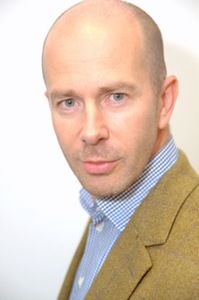
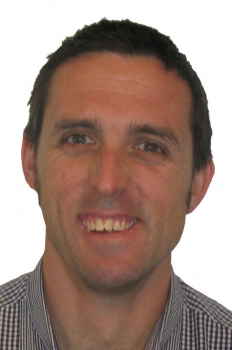



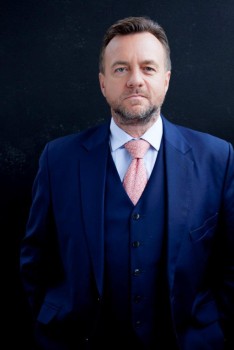

Thanks Perez Hilton
This is nothing but an ‘opinion’ piece, and a very poor one at that.
What a piece of inaccurate, bias, gossip trash.
Shame on you Mumbrella.
Well it is filed under “opinion”.
And news is a bit slow, so a bit of gossiptainment keeps it all going. 🙂
Ikon will be fine.
I’m guessing that their may be some Ikon staffers commenting here. I’m a a fan of the agency and hope they come out stronger, but think that this is a pretty fair piece asking some very relevant questions: how does a company create a unifying brand with no CEO? How does a local independent maintain parity with much richer competitors when it comes to tech?
A renewed focus on 6 star dashboards will surely fix things?
calm down Ikon staffers – its an opinion piece. Every agency is going through the same shit as everybody else. We’re all shitting over each other to win business by selling shit campaign for the mass market to swallow at the lowest price possible.
Agree with ‘calm down’ – this is a once high-flying award winning business that has struggled for the last couple of years and is now at a crossroads. It tried a leadership approach last year that hasn’t worked out for it and is now trying something different. How this new structure performs is critical as you imagine they can’t afford for this change not to work. An opinion piece on this therefore isn’t out of order.
Great article. Cuts to the core and exposes a dying business model clinging onto the past.
When the share price drops to 50c, probably in 4 months, STW will simply fall into the WPP portfolio and be streamlined down to within an inch of life.
Greet is far from the last middle manager to fall under the hammer.
Strong leadership & sound management is everything in times of turmoil. Luckily Ikon is in the hands of a man with passion, intelligence & experience. Imagine how quickly a company in the media business would fold under a CEO who didn’t know what he or she was doing?
Seems to me that we see an awful lot of negative opinion pieces on this particular agency. Don’t know what’s going on but something is. Did they stand on mumbrella’s toes?